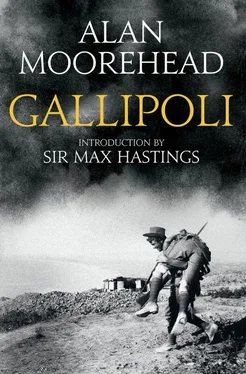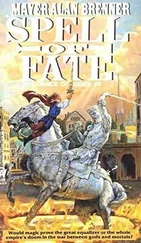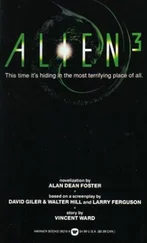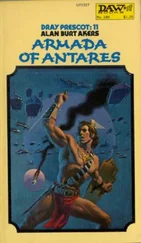Meanwhile Commander Unwin was having difficulty aboard the River Clyde. Her bows were still divided by an expanse of deep water from the shore, and when they tried to bring the steam hopper round to fill the gap it was swept away to port by the current and lay broadside to the beach, where it was useless. It was vital now that the two lighters should be brought round from the stern to make the causeway between the ship and the shore. Unwin left the bridge and dived overboard with a tow rope in his hand. He was at once followed into the water by an able seaman named Williams. Together the two men swam to the shore, and while still standing waistdeep in water and under heavy fire they managed to get the lighters lashed together and placed before the bows. Bracing himself against the current, Unwin held the more landward of the two lighters in position and shouted to the soldiers in the River Clyde to come ashore.
The men at once came running down the gangways along the ship’s sides, and as they ran they presented a target which was not unlike the line of moving objects one sees sometimes in a shooting gallery at a village fair. Having beaten off the smaller boats the Turks were now able to give all their attention to this new assault. They opened up their fire from both sides of the ship, and soon the gangways became jammed with dead and dying. Those of the British who succeeded in reaching the lighters found themselves exposed to an even closer fire, and presently Williams was hit. Not knowing that he was dead, Unwin propped him up in the water and in doing so let go his grip on the lighter. Immediately it was swept away in the current, spilling its cargo of wounded into the sea.
Air Commodore Samson came flying over Sedd-el-Bahr at this moment, and looking down saw that the calm blue sea was ‘absolutely red with blood’ for a distance of fifty yards from the shore, ‘a horrible sight to see.’ Red ripples washed up on the beach, and everywhere the calm surface of the water was whipped up into a ghastly discoloured foam by thousands of falling bullets. The sun was shining brightly.
The British had now reached that point in a battle which is the most terrible of all — the point where the leaders feel they must persist in attacking although all hope has gone. Just for a short time they live in this meaningless and heroic limbo which is at the edge of panic, and which makes a kind of welcome to death. It is a feeling which perhaps the parachutist knows when for the first time he jumps from the aircraft into the sky. The senseless attack had to continue for a little longer until it was sufficiently demonstrated that the thing was impossible, until enough of the general pool of courage had vanished with the dead, and shock and exhaustion had overcome them all. And so they kept pulling the lighters back into position, and the men kept running out of the ship and the Turks kept killing them.
When Commander Unwin collapsed in the water through cold and exhaustion a naval lieutenant and two midshipmen jumped in to take his place. After an hour’s rest aboard the River Clyde Unwin was back in the water again, dressed in a white shirt and flannel trousers (his uniform had been ripped off his back), and there he remained, struggling with the lighters, bringing the wounded off the beach, until again he collapsed and was carried away.
By 9.30 a.m., when the casualties were being numbered in many hundreds, it was becoming apparent to the soldiers at last that they could do no more. Barely two hundred had reached the shelter of the little bank on the beach, and the barbed wire before them was hung with the corpses of the men who had tried to cut a way through to the Turkish trenches. A thousand others remained inside the River Clyde , and they were safe enough there with the bullets hammering on the armoured plates of the ship, but directly they showed themselves at the sallyports the killing began again. Only the machine-guns mounted behind sandbags in the bows of the ship were able to keep firing.
General Hunter-Weston was at sea aboard the cruiser Euryalus all this time, and he knew little or nothing of what was going on. Accordingly he put the next part of the plan into action: Brigadier-General Napier was ordered to the shore with the main body of the troops. The transports steamed slowly forward to the point where they had a rendezvous with the boats which had taken the first assault troops to the shore. Had this meeting ever taken place a massacre of far greater proportions would certainly have occurred. But of the original assault force there remained barely half a dozen boats with living crews. These now came up to the transports and having emptied out their dead and wounded, the sailors stood by to return to the shore. There was room only for Napier, his staff and a few of his soldiers. As they approached the beach, the General was hailed by the men on the River Clyde who wanted to warn him that it was useless to continue. Napier, however, did not understand the situation. He came alongside the lighters, and seeing them filled with men sprang on board to lead them to the shore. But they made no response to his orders and he realized then that they were all dead. From the decks of the River Clyde they called to the General again, ‘You can’t possibly land.’ Napier shouted back, ‘I’ll have a damned good try.’ He tried, but he was dead before he reached the beach.
With this the assault landing at Sedd-el-Bahr came to an end.
Meanwhile the other four landings at Cape Helles had been going forward and with much better success. After heavy fighting near Tekke Burnu, about a mile away to the west, considerable numbers of soldiers were ashore on two beaches there, and towards midday Hunter-Weston began to divert his reinforcements to this point. To the east, in Morto Bay, another force had scrambled up the cliffs with trifling loss at Eski Hissarlik Point, and was securely ensconced. But the commander at Eski Hissarlik had no orders to go to the relief of Sedd-el-Bahr — indeed, he had no knowledge of what was going on there — so he stayed where he was and entrenched.
An even stranger situation had developed at the fifth landing place, a point which had been called ‘Y’ beach, about four miles up the coast on the western side of the peninsula. This landing was Hamilton’s own idea; he had planned to spring a trap on the Turks by getting 2,000 men ashore in this isolated spot. Their mission was to take the Turks in the rear and perhaps even cut them off entirely by marching across the tip of the peninsula and joining up with the other landings in the south. There was no actual beach at this point, but a cleft in the cliffs seemed to offer a fairly easy way up to the heights 200 feet above, and reconnaissance from the sea had revealed that the Turks had established no defences on the shore. [13] The following verse written by Jack Churchill, Winston Churchill’s brother, appeared later in an Army broadsheet: “Y Beach, the Scottish Borderer cried, While panting up the steep hillside, Y Beach! To call this thing a beach is stiff, It’s nothing but a bloody cliff. Why beach?’
This enterprise opened with astonishing success. The 2,000 men landed and climbed up the cliffs without a single shot being fired at them. At the top there was no sign of the enemy at all. While their senior officers strolled about through the scrub inspecting the position the men sat down to smoke and brew themselves a cup of morning tea. And so the morning was whiled away. Less than an hour’s march to the south their comrades at Sedd-el-Bahr and Tekke Burnu were being destroyed but they knew nothing of this. They heard the distant sounds of firing through the clear sunlit air, but they made no move in that direction. Had they but known it these troops at Y beach were equal in numbers to the whole of the Turkish forces in the tip of the peninsula that morning; they could have marched forward at will and encircled the entire enemy position. By midday they might have cleared the way to Achi Baba and turned a massacre into a brilliant victory.
Читать дальше












